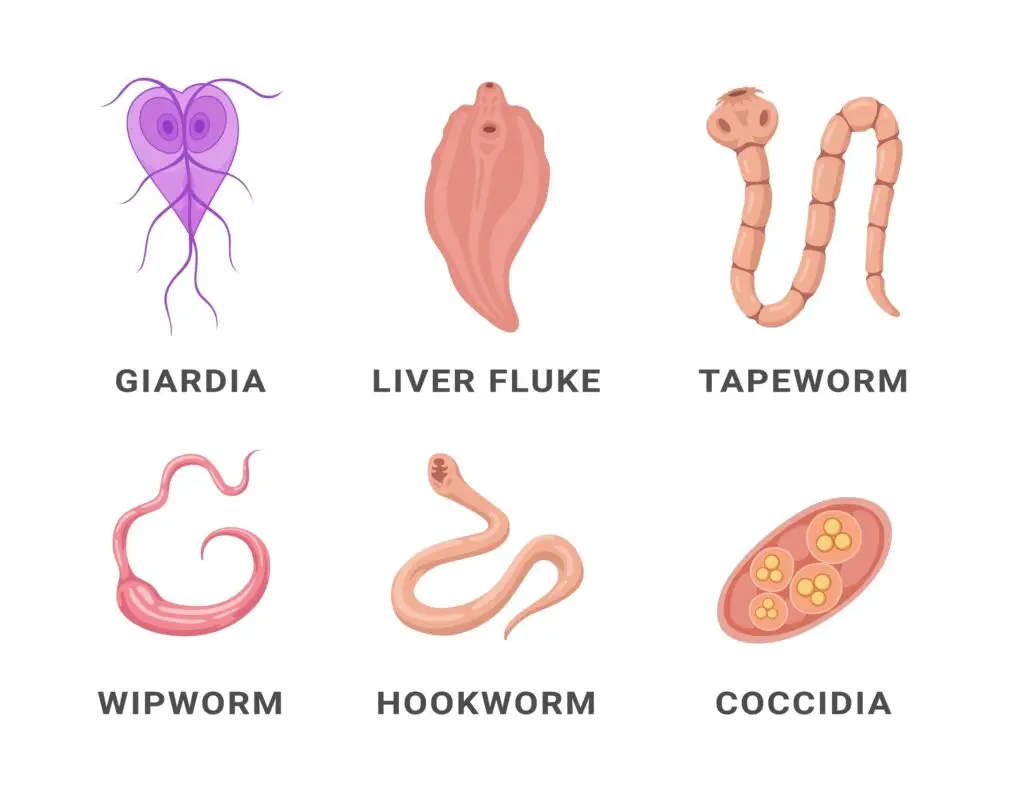Parasitism
What is Parasitism?
Parasitism is a type of symbiotic relationship where one organism, the parasite, benefits at the expense of the host. In parasitism, the parasite relies on the host for nutrients or habitat, often causing harm to the host organism.
One Wins, One Loses
Parasitism is a relationship where one organism, called the parasite, benefits while the other, called the host, is harmed. The parasite takes something it needs, like food or shelter, from the host, often making the host weaker or sick.
How Parasitism Works
Parasites depend on their host to survive, but they don’t usually kill the host because they need it to live. Parasites can live:
- Inside the Host: Like tapeworms in an animal’s intestines.
- On the Host: Like fleas on a dog’s skin.
Examples of Parasitism
- Ticks on Deer: Ticks bite and suck the deer’s blood, which gives the tick food but can make the deer sick.
- Mistletoe on Trees: Mistletoe grows on trees, stealing water and nutrients.
- Tapeworms in Animals: Tapeworms live in the intestines of animals, eating the food their host digests.
Parasites and Humans
Parasites affect humans in many ways. Common examples include lice, bed bugs, and intestinal worms. Some parasites, like mosquitoes carrying malaria, can cause serious diseases. Hygiene, medicine, and pest control help reduce the risk of parasitic infections. Understanding parasites helps people stay healthy.
Parasite Adaptations
Parasites have special features that help them survive. For instance, ticks have sharp mouthparts to cling to their hosts and suck blood. Tapeworms have hooks and suckers to attach to the intestines of animals. Some parasites even camouflage themselves to avoid detection. These adaptations make them successful in living off their hosts.
Effect on Host
- Weakens the Host: The parasite takes nutrients or blood, leaving the host tired or sick.
- Spreads Disease: Some parasites, like mosquitoes, carry diseases like malaria.
- Damages the Host: Mites can damage plants by eating their leaves.
How Hosts Fight Back
Hosts have defenses to protect themselves from parasites. For example, animals groom themselves to remove ticks or fleas. Humans have immune systems that recognize and destroy harmful invaders. Some plants release chemicals to repel parasitic plants or insects. These defenses create a constant battle between hosts and parasites.
How to Control Parasites
- Clean Environments: Keeping pets clean helps prevent fleas and ticks.
- Vaccines and Medicine: Help protect humans and animals from parasites like worms.
- Protect Plants: Farmers use natural methods to reduce parasites that harm crops.
Comparison to Other Relationships
Parasitism is different from other relationships in nature. In mutualism, both organisms benefit, like bees and flowers. In commensalism, one organism benefits without harming the other, like barnacles on whales. Parasitism is unique because only one organism benefits, and the other is harmed. These relationships highlight the diversity of interactions in the natural world.
Parasitism in Ecosystems
Parasites play important roles in ecosystems. They help control populations by weakening or killing hosts, which can prevent overpopulation. For example, parasitic wasps lay eggs in caterpillars, keeping their numbers in check. Parasites also create food for other animals, like birds that eat ticks. While harmful to their hosts, parasites are part of nature’s balance.
